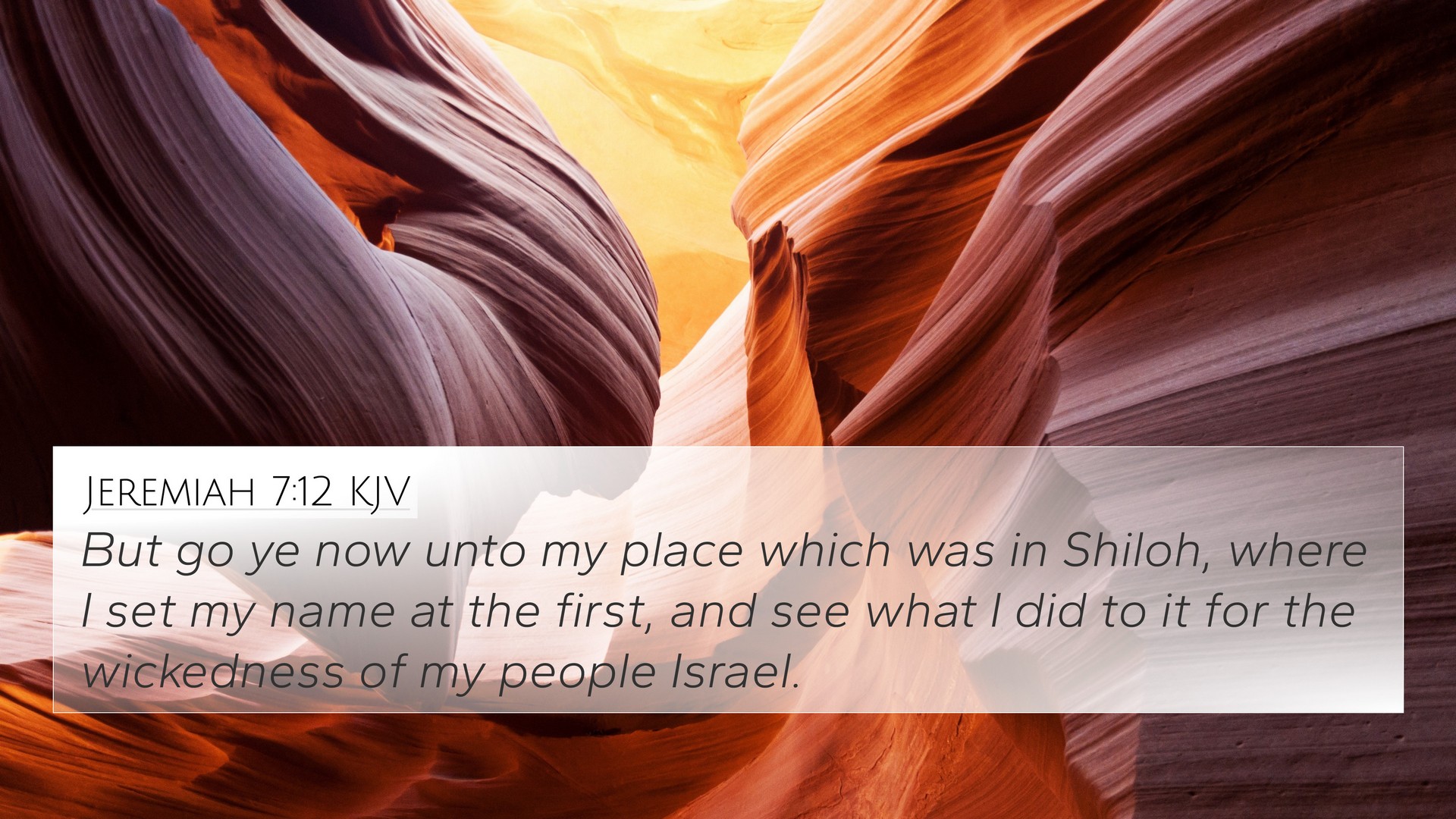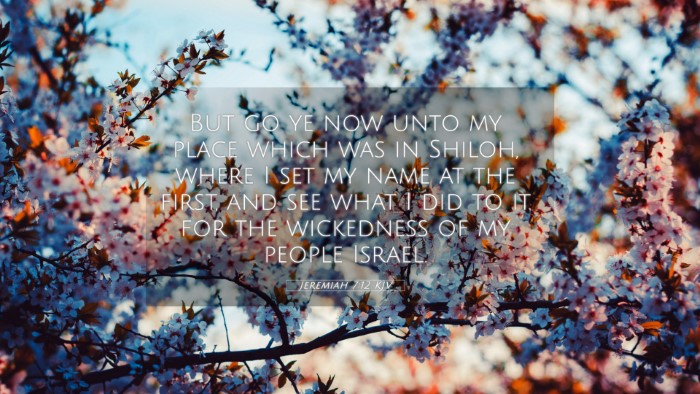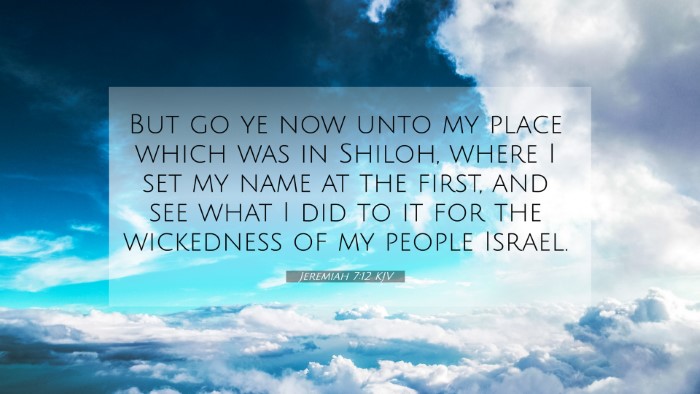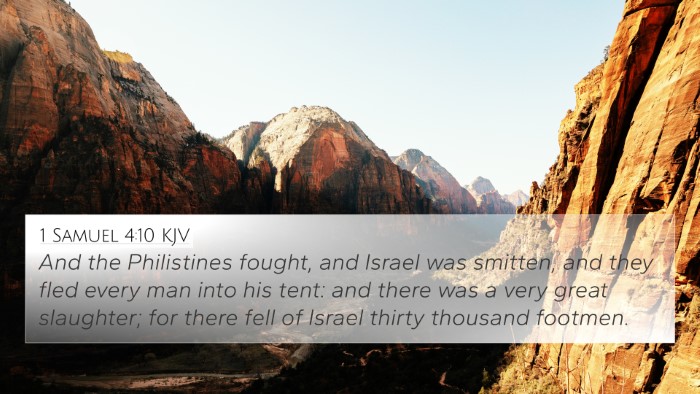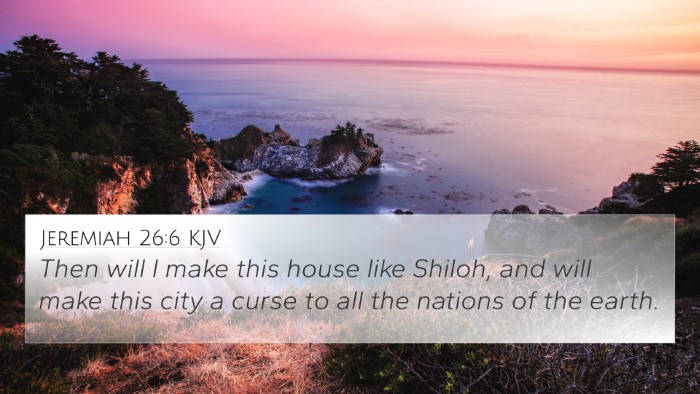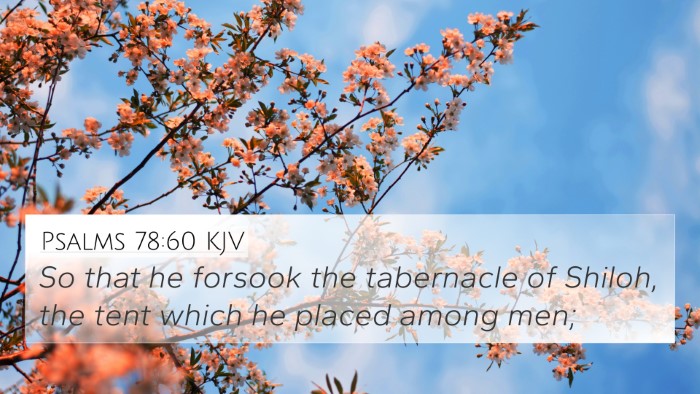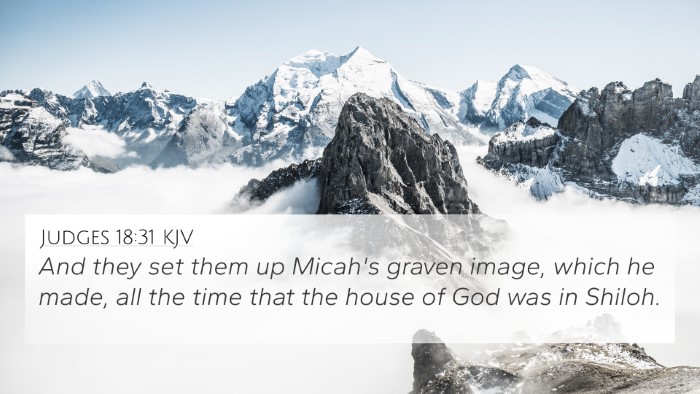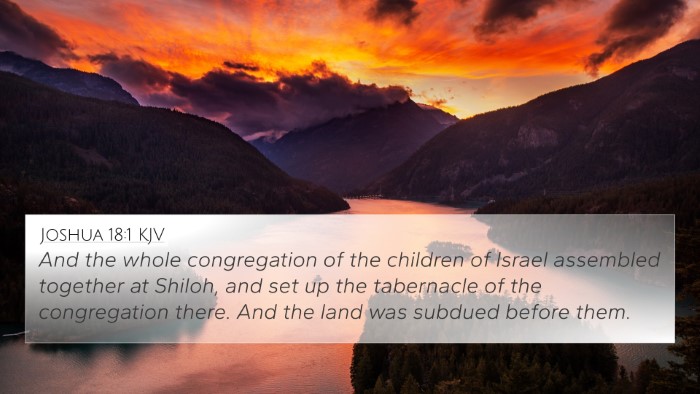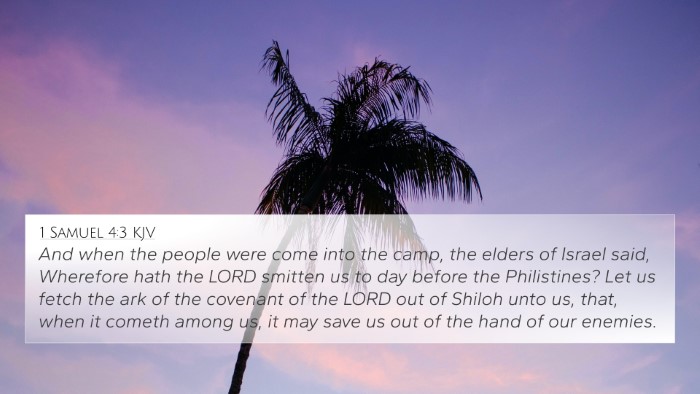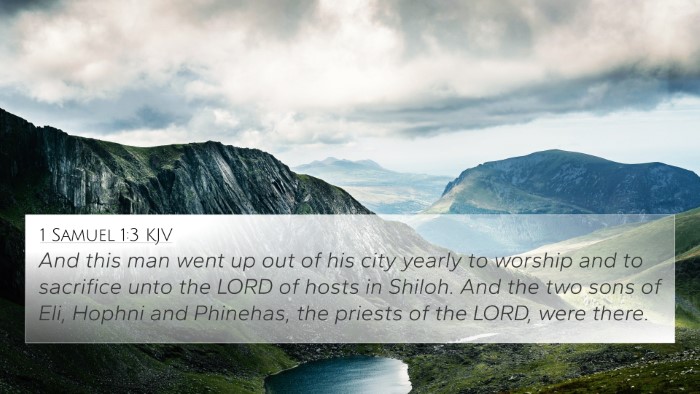Meaning and Interpretation of Jeremiah 7:12
Jeremiah 7:12: "But go ye now unto my place which was in Shiloh, where I set my name at the first, and see what I did to it for the wickedness of my people Israel."
This verse serves as a powerful reminder of God's judgment and the consequences of disobedience. The reference to Shiloh is significant as it illustrates a historical precedent for divine punishment due to unfaithfulness, emphasizing the seriousness of their current situation.
Commentary Insights
-
Matthew Henry:
Henry points out that God is directing the people to reflect on Shiloh, where the tabernacle was once located. Shiloh's destruction serves as a warning about the consequences of turning away from God and the potential loss of His presence.
-
Albert Barnes:
Barnes notes that Shiloh was the first place where the Israelites worshipped God after entering the Promised Land. The reference to Shiloh underscores how the most holy places can become desolate when the people of God forsake His commandments. The implication is a call to repentance rather than a mere historical observation.
-
Adam Clarke:
Clarke emphasizes the historical significance of Shiloh, highlighting its former glory and the eventual destruction due to Israel's sin. He suggests that this serves as a divine warning to those who think they are safe in their religious practices while neglecting true obedience to God.
Thematic Connections
Jeremiah 7:12 reflects a critical theme in Scripture about the relationship between God's people and their faithfulness. It highlights numerous connections between various Bible verses regarding God's judgment and mercy.
Cross References
- 1 Samuel 4:21: The capture of the ark symbolizes God's departure from Shiloh.
- Psalms 78:60: God forsook the tabernacle at Shiloh due to His people's disobedience.
- Matthew 23:38: Jesus warns of the desolation of Jerusalem, parallel to Shiloh's fate.
- Hebrews 12:25-29: A reflection on the consequences of rejecting God’s warnings.
- Jeremiah 26:6: A warning of judgment on the temple if people do not heed God.
- Isaiah 1:10-20: A call to repentance linked to false worship practices.
- Exodus 20:5: God's warning about idolatry and its repercussions.
- Micah 1:5: The reasons for judgment against Israel, alluding to its unfaithfulness.
- Zechariah 1:3: God's call to repentance in light of past judgments.
- Revelation 3:16: Warning against lukewarmness, akin to the message to Israel.
Connections Between Bible Verses
The connections between these verses reveal a broad theme of God's intentions and promises toward His people:
- In 1 Samuel 4:21, Shiloh symbolizes spiritual abandonment.
- In Isaiah 1:10-20, the emphasis on true worship invites a reflection on religious practices.
- In Matthew 23:38, the desolation of the city serves as a prophetic parallel to past judgements.
Cross-Referencing Biblical Texts
Using cross-references is a valuable tool for deeper Bible study. Understanding the context of Jeremiah 7:12 through other Scriptures enhances comprehension of God's consistent message throughout the Bible.
Application in Study
For anyone trying to understand the complexities of God's character and His covenant, using a Bible concordance or a Bible cross-reference guide can be incredibly beneficial. These resources allow individuals to:
- Identify connections between both the Old and New Testaments.
- Track themes and motifs to see how God’s attributes are revealed through various contexts.
- Prepare for sermons or theological discussions with a robust understanding of Biblical interconnectedness.
Conclusion
Jeremiah 7:12 serves as a potent reminder of the consequences of forsaking God. By analyzing this verse alongside related Scriptures, believers gain insight into the seriousness of faithfulness and the reality of God's judgment. Utilizing tools for Bible cross-referencing can aid in understanding these themes and how they connect across the Biblical narrative, enriching personal study and communal teachings.
